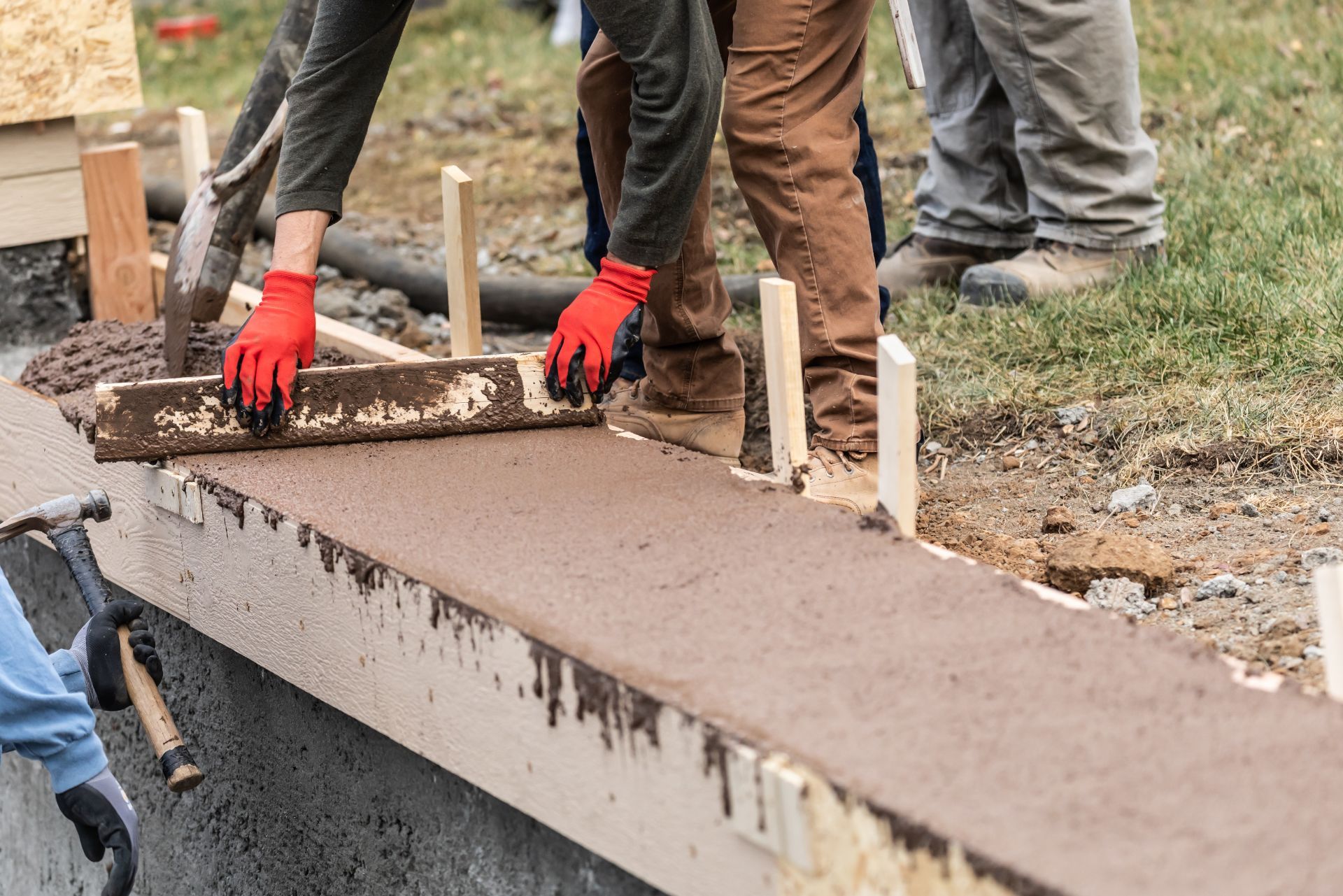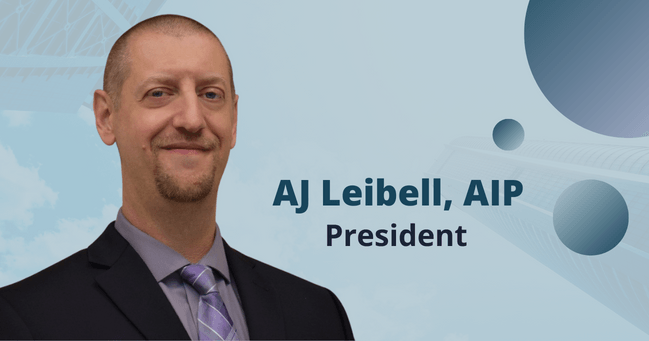Florida Concrete Contractor Insurance
8:30am - 5:00pm Mon-Fri
Will Reply in 15min*
Top Recommended Business Insurance Policies

Index
The Florida Concrete Contractors Industry Landscape
Why Insurance is Crucial for Florida Concrete Contractors
Types of Insurance Florida Concrete Contractors Should Consider
Concrete Construction and Hurricane Resistance: Insurance Implications
Cost Considerations: Balancing Insurance Premiums and Construction Expenses
Choosing the Right Insurance Provider and Policy
Contact Us
Phone
Location
Florida’s booming construction industry, especially within the concrete sector, faces unique challenges and risks that make insurance an essential consideration for contractors. With the Concrete Contractors industry in Florida projected to reach a market size of $5.2 billion by 2025, understanding the nuances of insurance coverage is vital for protecting businesses, employees, and projects in this competitive and often unpredictable environment. This comprehensive guide explores everything you need to know about insurance for concrete contractors in Florida, from market trends to risk management and cost considerations.
For more detailed industry insights, visit
IBISWorld’s Florida Concrete Contractors report.
The Florida Concrete Contractors Industry Landscape
The concrete contracting industry in Florida is characterized by steady growth and increasing demand, driven by both residential and commercial construction projects. Industry establishments are expected to grow at an annualized rate of 0.1%, reaching approximately 7,284 locations by 2025. This growth, though modest, reflects the ongoing need for concrete infrastructure in a state with rapid urban development and significant rebuilding efforts following hurricane damage. The demand for concrete is particularly pronounced in urban centers like Miami and Orlando, where population surges have led to a boom in new housing developments, commercial spaces, and public infrastructure projects.
Concrete contractors in Florida face a complex risk environment, including exposure to natural disasters, workplace injuries, and fluctuating insurance premiums. Understanding these risks is crucial when selecting appropriate insurance coverage. The unpredictability of Florida's weather, especially during hurricane season, necessitates that contractors not only prepare for immediate damage but also invest in resilient construction practices. Additionally, the safety of workers on job sites remains a priority, prompting many contractors to implement rigorous training programs and safety protocols to mitigate the risk of accidents and injuries.
As the market expands, contractors must stay informed about industry trends, including the rising costs of materials and labor, as well as evolving building codes aimed at enhancing structural resilience in hurricane-prone regions. Innovations in concrete technology, such as the use of eco-friendly materials and advanced mixing techniques, are also becoming increasingly relevant. These advancements not only contribute to sustainability efforts but can also improve the durability and longevity of concrete structures, providing long-term benefits for both contractors and clients. Furthermore, the integration of smart technology in construction practices is gaining traction, allowing for better project management and efficiency, which is essential in a competitive market.
Why Insurance is Crucial for Florida Concrete Contractors
Insurance is not just a regulatory requirement for many contractors; it is a critical safeguard against the financial fallout of accidents, property damage, and liability claims. Florida’s construction workforce experiences approximately 3.8 injuries per 100 workers annually, according to OSHA data. This statistic highlights the inherent risks in construction work and underscores the importance of workers’ compensation insurance to protect employees and contractors alike.
Moreover, the state’s vulnerability to hurricanes and severe weather events means that property and builder’s risk insurance are essential components of a contractor’s risk management strategy. Since 2023, builder’s risk insurance premiums in Florida have surged by 20-30%, reflecting increased losses from hurricanes and insurer withdrawals from the market. Contractors must navigate these rising costs while ensuring adequate coverage for their projects.
Given these challenges, comprehensive insurance policies tailored to the concrete contracting industry can provide peace of mind and financial stability. In addition to standard liability and workers' compensation insurance, contractors should consider specialized coverage options such as pollution liability insurance, which protects against claims related to environmental damage caused by construction activities. This is particularly relevant in Florida, where wetlands and protected ecosystems are prevalent, and any accidental discharge of pollutants can lead to significant legal and financial repercussions.
Furthermore, as the construction industry increasingly embraces technology, contractors may also want to explore cyber liability insurance. With the rise of digital project management tools and cloud-based storage solutions, the risk of data breaches and cyber attacks has grown. Protecting sensitive client information and project data is crucial, particularly in a competitive market like Florida's, where reputation and trust play a significant role in securing future contracts. By investing in a robust insurance portfolio that addresses both traditional and emerging risks, concrete contractors can better position themselves for success in a challenging environment.

Types of Insurance Florida Concrete Contractors Should Consider
General Liability Insurance
General liability insurance protects contractors from third-party claims of bodily injury, property damage, and personal injury. This coverage is fundamental for concrete contractors who frequently work on diverse job sites with multiple stakeholders. It not only safeguards against potential lawsuits but also enhances a contractor's credibility when bidding for projects. Clients often require proof of general liability insurance before awarding contracts, viewing it as a sign of professionalism and responsibility.
Workers’ Compensation Insurance
Due to the physical nature of concrete work and the relatively high injury rate in Florida’s construction sector, workers’ compensation insurance is essential. It covers medical expenses and lost wages for employees injured on the job, helping contractors comply with state laws and maintain workforce morale. Furthermore, this insurance can provide rehabilitation services for injured workers, ensuring they can return to work safely and effectively. By investing in workers’ compensation, contractors not only protect their employees but also foster a culture of safety and well-being on the job site, which can lead to increased productivity and lower turnover rates.
Builder’s Risk Insurance
Builder’s risk insurance covers buildings under construction against damage from events like fire, theft, vandalism, and weather-related incidents. In Florida, where hurricanes pose a significant threat, this coverage is particularly important. The recent increase in premiums by 20-30% since 2023 reflects the heightened risk and insurer caution in the region. Additionally, builder's risk insurance can be tailored to include coverage for materials and equipment stored off-site, which is crucial for contractors managing multiple projects simultaneously. Understanding the nuances of this insurance can help contractors avoid costly out-of-pocket expenses in the event of unforeseen circumstances that could delay project timelines.
Commercial Auto Insurance
Many concrete contractors rely on vehicles to transport materials and equipment. Commercial auto insurance covers liability and physical damage related to business vehicles, protecting contractors from costly claims arising from accidents. This type of insurance is especially relevant in Florida, where traffic congestion can lead to increased accident rates. Moreover, commercial auto insurance can also cover non-owned vehicles used for business purposes, ensuring that contractors remain protected even when employees use their personal vehicles for work-related tasks. By having comprehensive commercial auto coverage, contractors can focus on their projects without the looming worry of potential vehicle-related liabilities.
Professional Liability Insurance
Also known as errors and omissions insurance, this coverage protects contractors against claims related to design errors, negligence, or failure to meet project specifications. While not always mandatory, it is advisable for contractors offering design-build services or consulting. This insurance can be particularly beneficial in Florida's competitive market, where clients expect high-quality work and adherence to strict regulations. Furthermore, professional liability insurance can cover legal fees and settlements, which can be substantial in the event of a dispute. By securing this type of coverage, contractors can not only protect their financial interests but also enhance their reputation as reliable and trustworthy professionals in the construction industry.

Concrete Construction and Hurricane Resistance: Insurance Implications
Florida’s susceptibility to hurricanes has driven demand for more resilient building methods, including the use of reinforced concrete walls. According to Darius Grimes, president of Disaster-Smart, homes built with reinforced concrete walls are not hurricane-proof but are “hurricane-resistant,” offering superior protection against hurricane-force winds.
This enhanced durability can influence insurance underwriting and premiums. For example, homes built to FORTIFIED standards, which often incorporate concrete construction, have demonstrated significantly better performance during hurricanes. A study by the Alabama Department of Insurance and the University of Alabama’s Center for Risk and Insurance Research found that FORTIFIED-built homes withstood Hurricane Sally in 2020 far better than conventional structures.
Insurance agents like Carl Schneider emphasize that FORTIFIED homes exceed Florida’s building codes, which can translate into potential premium discounts or more favorable insurance terms for contractors specializing in these resilient construction methods.
In addition to the immediate benefits of reduced risk and lower insurance premiums, the long-term advantages of investing in hurricane-resistant construction are becoming increasingly apparent. Homeowners can enjoy peace of mind knowing that their properties are better equipped to withstand severe weather events, which can lead to lower repair costs and less frequent claims. Furthermore, as climate change continues to impact weather patterns, the importance of resilient construction is expected to grow, making such homes not only a smart choice for safety but also a wise financial investment.
Moreover, the integration of sustainable building practices alongside concrete construction can further enhance the appeal of these homes. Many builders are now incorporating energy-efficient designs and materials, which not only contribute to environmental sustainability but also result in lower utility bills for homeowners. This dual focus on durability and sustainability is increasingly attracting buyers who are looking for properties that are both resilient to natural disasters and environmentally friendly. As a result, the market for hurricane-resistant homes is likely to expand, presenting opportunities for builders and insurers alike to innovate and adapt to changing consumer preferences.
For more on hurricane-resistant construction and insurance impacts, see Insurance Journal’s coverage on FORTIFIED homes.
Cost Considerations: Balancing Insurance Premiums and Construction Expenses
Building with concrete walls in Florida can cost up to $250 per square foot, approximately 50% more than conventional wood-frame homes, according to estimates from the National Association of Home Builders. This higher upfront cost reflects the materials, labor, and specialized techniques required for reinforced concrete construction.
While the initial investment is greater, the long-term benefits include increased durability, reduced maintenance, and potentially lower insurance premiums due to enhanced resistance to hurricane damage. Contractors must weigh these factors when bidding on projects and selecting insurance coverage. Furthermore, the longevity of concrete structures often translates to lower lifecycle costs, as they are less prone to issues like rot, pests, and water damage, which can plague wood-frame homes over time.
Insurance premiums themselves have been rising, especially builder’s risk insurance, as the Florida market adjusts to increased hurricane-related losses. Contractors should work closely with insurance providers to tailor policies that balance adequate protection with manageable costs. Additionally, it's important for builders to stay informed about the evolving regulations and incentives related to disaster-resistant construction, as these can impact both insurance rates and construction practices. For instance, some local governments offer tax breaks or grants for building with materials that meet stringent hurricane codes, which can further offset the initial costs and encourage more resilient building practices in storm-prone areas.
Choosing the Right Insurance Provider and Policy
Selecting the right insurance provider is as important as choosing the right coverage. Florida concrete contractors should seek insurers with expertise in construction risks and familiarity with the state’s regulatory environment. Providers that understand the nuances of hurricane risk, workers’ compensation requirements, and builder’s risk challenges can offer more competitive rates and better service. Additionally, it’s beneficial to look for insurers that have a solid reputation and positive reviews from other contractors in the industry. A provider with a proven track record of handling claims efficiently can save contractors both time and money in the long run.
Contractors should also consider bundling policies where possible, such as combining general liability and workers’ compensation, to reduce overall premiums. This not only simplifies the management of insurance policies but can also lead to significant cost savings. Regularly reviewing and updating insurance policies ensures coverage keeps pace with changes in business size, project scope, and regulatory requirements. As projects evolve, so do the risks associated with them; thus, staying informed about new developments in the industry and adjusting coverage accordingly is crucial for maintaining robust protection.
For assistance with commercial building insurance quotes tailored to Florida contractors, Estimate Florida Consulting offers valuable resources and guidance. Their team can help contractors navigate the complexities of insurance options, ensuring they find the best fit for their specific needs. Furthermore, they provide insights into emerging trends in the construction insurance landscape, which can be invaluable for contractors looking to stay ahead of potential risks.
Understanding the intricacies of insurance policies is essential for contractors. Many policies contain exclusions or limitations that can significantly impact coverage during a claim. Therefore, it’s advisable for contractors to engage in discussions with their insurance agents to clarify any ambiguities. This proactive approach not only enhances awareness but also empowers contractors to make informed decisions that align with their business objectives and risk management strategies.
Risk Management Best Practices for Concrete Contractors
Beyond insurance, effective risk management can reduce the likelihood of claims and improve safety outcomes. Concrete contractors should implement comprehensive safety programs, including regular training, use of personal protective equipment, and adherence to OSHA standards.
Maintaining clear documentation and communication on job sites helps prevent disputes and supports insurance claims if incidents occur. Additionally, investing in durable construction methods, such as reinforced concrete and FORTIFIED building techniques, can mitigate damage risks and influence insurance terms positively.
Ultimately, a proactive approach combining insurance coverage with robust risk management strategies positions Florida concrete contractors for long-term success.
Conclusion
Florida’s concrete contracting industry operates in a challenging environment marked by steady market growth, significant hurricane risk, and rising insurance costs. Contractors must navigate these complexities by securing comprehensive insurance coverage tailored to their specific risks, including general liability, workers’ compensation, builder’s risk, and more specialized policies.
Investing in hurricane-resistant construction techniques not only enhances project durability but can also positively impact insurance premiums and claims outcomes. Staying informed about industry trends, regulatory changes, and insurance market dynamics is essential for contractors aiming to protect their businesses and employees effectively.
For ongoing updates on Florida’s concrete contracting industry and insurance considerations, resources like IBISWorld and Insurance Journal provide valuable insights and analysis.








